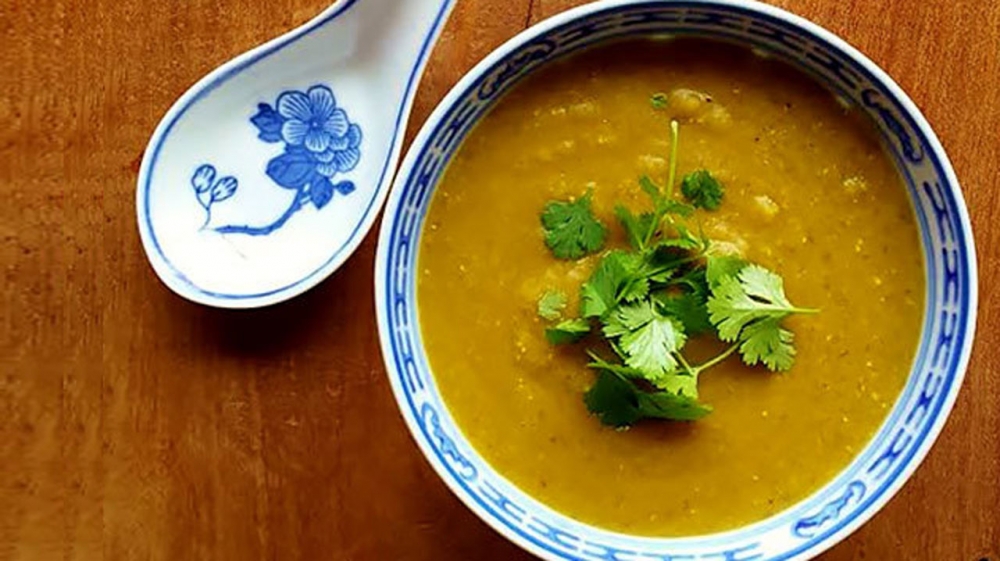“It smells like chicken soup!” my husband exclaimed when he walked into the kitchen. I’m not sure if it does; it’s been a long, long time since I’ve smelled chicken soup. What I am sure of though, is that this dahl tastes amazing. Plus, it has more healing ingredients than most chicken soups!
This nourishing and warming dahl contains inflammatory and immune system boosting spices, such as turmeric and ginger, is easily digestible because of the kombu and apple cider vinegar and gets an extra healing-kick from the miso paste and umeboshi paste – which is a natural antibiotic.
If you’re short on time, you don’t have to soak the lentils. Soaking will make them more easily digestible though, so I do recommend it here. I’ve given approximate amount for the spices depending on your taste.
Healing miso dahl
Ingredients
- 4 cups yellow lentils
- 3 stalks of kombu
- splash of apple cider vinegar
- 2 – 5 tsp turmeric (fresh or powdered)
- 2 – 5 tsp ginger (fresh or powdered)
- 1 – 5 tsp ground black pepper
- 1 – 3 tsp cardamom powder
- 1 – 3 tsp cumin powder
- 1 – 3 tsp coriander powder
- 1 – 2 tsp cinnamon powder
- 2 – 4 tbs miso paste (I used Genmai Miso)
- 1 tbs umeboshi paste
Method
Wash the lentils. Soak the lentils overnight, together with the kombu and a big splash of apple cider vinegar in plenty of water.
The next day, rinse the lentils and kombu.
Put in a large pan, add enough water to cover all lentils and kombu stalks (add more water if you’d like your dahl to be more soup-like).
Bring to a boil and let cook until the lentils and kombu stalks are tender.
Add the spices in the amount you like – taste as you go!
Remove the pan from the heat.
Add the miso paste and umeboshi paste.
Use a hand-blender (immerson blender) to blend until smooth.
Serve and enjoy!
This recipe is taken from Irina’s cookbook ‘With a pinch of yoga‘, which explains Ayurveda and chakras in terms that you can understand, and then teaches you how to incorporate them into your yogic diet. All forty-six recipes are completely plant-based, gluten free, sugar-free and even sugar substitute-free. Nestled within these yummy recipes is also plenty of inspiration for your daily yoga practice.

